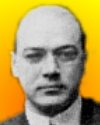
On 17 Jun 1876, Edward Anthony Spitzka was born, American anatomist and brain morphologist who autopsied (29 Oct 1901) the brain of Leon Franz Czolgosz, the assassin of U.S. president William McKinley.
Throughout his career he studied the brain morphology of groups of famous people, different races, and criminals, thought ultimately he was unable to link traits to brain structure.
This conclusion was the topic of a 1906 newspaper article, "Looking for 'The Face Within the Face' in Man," which describes his research, including his examination of Czolgosz's brain.

On 17 Jun 1832, William Crookes was born, a British chemist and physicist who discovered the element thallium, investigated cathode rays, invented the radiometer and much more in a long life of unbroken scientific and business activity, which culminated in his appointment as President of the Royal Society in 1913. Today's book pick is: William Crookes (1832-1919) and the Commercialization of Science (Science, Technology and Culture, 1700-1945), by William H. Brock This, the first biography of William Crookes, gives us the whole man: one of the most complex, public, and interesting figures in the history of science. Professor Brock guides us through the abundant catalogue of Crookes' accomplishments, placing his scientific activities in the context of the business of making a living from science - something that Crookes did principally as a science journalist and editor with his Chemical News, and by business enterprises ranging from water analysis, sewerage schemes, and goldmining to the design of electric light bulbs.
It is available from Amazon, typically about New from $172.37. Used from $125.77. (As of earlier time of writing - subject to change.)
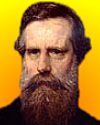 | England and all civilised nations stand in deadly peril of not having enough to eat. As mouths multiply, food resources dwindle. Land is a limited quantity, and the land that will grow wheat is absolutely dependent on difficult and capricious natural phenomena... I hope to point a way out of the colossal dilemma. It is the chemist who must come to the rescue of the threatened communities. It is through the laboratory that starvation may ultimately be turned into plenty... The fixation of atmospheric nitrogen is one of the great discoveries, awaiting the genius of chemists. |
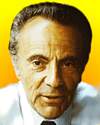 | It is natural selection that gives direction to changes, orients chance, and slowly, progressively produces more complex structures, new organs, and new species. Novelties come from previously unseen association of old material. To create is to recombine. |
 | The idea that the bumps or depressions on a man's head indicate the presence or absence of certain moral characteristics in his mental equipment is one of the absurdities developed from studies in this field that has long since been discarded by science. The ideas of the phrenologist Gall, however ridiculous they may now seem in the light of a century's progress, were nevertheless destined to become metamorphosed into the modern principles of cerebral localization. |
| Before you look at today's web page, see if you can answer some of these questions about the events that happened on this day. Some of the names are very familiar. Others will likely stump you. Tickle your curiosity with these questions, then check your answers on today's web page. | |
| Births | |
 | George Cormack, born 17 Jun 1870, invented one of today’s brand-name breakfast cereals. In 1921, a health clinician in Minneapolis, while mixing a batch of bran gruel for his patients, spilled some of the mix on a hot stove where it sizzled into a crisp flake. After tasting the very first prototype, he took the idea to the Washburn Crosby Company, where the head miller, George Cormack, took on the task of trying to strengthen the flakes to keep them from turning to dust inside a cereal box. Cormack tested 36 varieties of wheat before he developed the perfect flake. The brand name was chosen by a company wide contest won by Jane Bausman, the wife of the export manager. What is the name of the cereal brand? |
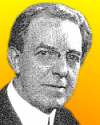 | On 17 Jun 1867 is the birthday of an Irish-born American inventor of a shorthand system named for him. Can you name this man? |
| Deaths | |
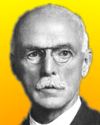 | Sir Arthur Harden (1865-1940) was an English biochemist who shared the 1929 Nobel Prize for Chemistry for work on the fermentation of sugar. What did he study in the fermentation process? |
| Events | |
 | On 17 Jun 1928, an aviator embarked on a trans-Atlantic flight from Newfoundland to Wales; she was the first woman to fly across the Atlantic Ocean, though as a passenger in a plane piloted by Wilmer Stultz. In 1932, she became the first woman to fly solo across that ocean. Can you name this woman? |
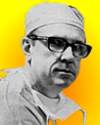 | On Jun 17 of a certain year, the first kidney transplant operation was undertaken in Chicago. The 45-minute operation was performed by Dr. Richard H. Lawler. He decided upon the surgery for a the 44-year-old woman because of her urgent medical need at the time. Lawler had no interest in becoming a transplant surgeon. It was four years before there was another successful result from attempts by several other surgeons in the U.S. and France. In what decade did this first operation take place? |
 | On 17 Jun 1947, the first globe-circling passenger airline was inaugurated as it left New York. Can you name this airline? |
Fast answers for the previous newsletter for June 16: she was the first American woman to win an unshared Nobel Prize • it will predictably joins two carbon atoms from different molecules to form a double bond. • Wernher von Braun • ether • the decade including the year 1903 • Pepsi-Cola.
 If you enjoy this newsletter, the website, or wish to offer encouragement or ideas, please send feedback by using your mail reader Reply button.
If you enjoy this newsletter, the website, or wish to offer encouragement or ideas, please send feedback by using your mail reader Reply button. Your click on a Facebook, StumbleUpon, or other social button on the site webpages is also a welcome sign of appreciation. Thank you for using them.
© This newsletter is copyright 2020 by todayinsci.com. Please respect the Webmaster's wishes and do not put copies online of the Newsletter — or any Today in Science History webpage. (If you already have done so, please remove them. Thank you.) Offline use in education is encouraged such as a printout on a bulletin board, or projected for classroom viewing. Online, descriptive links to our pages are welcomed, as these will provide a reader with the most recent revisions, additions and/or corrections of a webpage. For any other copyright questions, please contact the Webmaster by using your mail reader Reply button.
--
If you do not want to receive any more newsletters, Unsubscribe
To update your preferences and to unsubscribe visit this link
Executive Real Estate Business Class
-
"It was like a man with wings. It wasn't like anything you'd see on TV or in a monster movie." ...
About the publisher
Search This Blog
Blog Archive
-
▼
2020
(1542)
-
▼
June
(193)
- TRAVEL: Epic America—Our photographers' picks
- On This Day for June 30 - Night of the Long Knives...
- Newsletter for Tuesday 30 June.
- We told you: Mass-Tracking COVI-PASS Immunity Pass...
- June 30: Theory of Evolution, the Night of Long Kn...
- HISTORY: And the symbols come tumbling down
- Explore the Ocean with Nat Geo Kids Magazine
- New This Week on History News Network
- On This Day for June 29 - London's Globe Theatre d...
- Newsletter for Monday 29 June.
- COVID Cartoon Night (not funny) while we weep for ...
- June 29: Shakespeare's Globe Theatre Burns Down an...
- FAMILY: Getting your kid to help others
- Henry VIII's surprising burial place | The world's...
- On This Day for June 28 - Assassination of Archduk...
- Say the wrong thing: lose visitation with your kid...
- Newsletter for Sunday 28 June.
- June 28: Franz Ferdinand Assassinated, the Treaty ...
- The Compass: Kenya
- How the Invention of A/C Changed US Politics
- On This Day for June 27 - Yen made official moneta...
- Newsletter for Saturday 27 June.
- June 27: 1st Women's Magazine, Nuclear Power Stati...
- CORONAVIRUS SPECIAL EDITION: The virus hasn't won ...
- PHOTOGRAPHY: A legendary photographer's enduring r...
- Partner: How to keep your kids learning vocab this...
- Archaeologists Say They've Just Solved The 400-Yea...
- The Roundup Top Ten From History News Network
- On This Day for June 26 - Opening of CN Tower, Bab...
- Newsletter for Friday 26 June.
- Contact Tracer warns of forced vaccinations plus R...
- June 26: Reconnaissance balloons, Kennedy's Clario...
- YOUR WEEKLY ESCAPE: A dangerous quest for hallucin...
- That Was No Bunny: Watch New Episode of Alone Tonight
- ANIMALS: Leave that elephant alone
- On This Day for June 25 - Korean War begun, Antoni...
- Newsletter for Thursday 25 June.
- June 25: 1st Female PhD, Custer's Last Stand, the ...
- SCIENCE: The heat wave in the Arctic
- Demystified: What Does "SPF" Mean?
- On This Day for June 24 - Russia invaded by Napole...
- Breaking News from History News Network
- Newsletter for Wednesday 24 June.
- June 24: Fatal Medieval Dance Manias, the Gadsden ...
- TRAVEL: Fear of flying and hotel rooms fuels RV boom
- Be at the Front Lines of History's Most Epic Battl...
- On This Day for June 23 - Battle of Bannockburn, C...
- Lowest US coronavirus deaths reported since March ...
- Newsletter for Tuesday 23 June.
- June 23: World's Oldest Parliament, the Contracept...
- Life Under The Shah: What Iran Looked Like Before ...
- HISTORY: A swift goodbye to some racist imagery (a...
- A whole year of Britannica Premium for $49.99?
- New This Week on History News Network
- On This Day for June 22 - Mutiny against Henry Hud...
- Newsletter for Monday 22 June.
- Clintons and Gates Connected at the Hip plus Cardi...
- June 22: Galileo Galilei Recants, Last Shot of the...
- FAMILY: How to keep kids safe as places reopen
- On This Day for June 21 - Japanese defenses destro...
- Newsletter for Sunday 21 June.
- June 21: 1st Governor General of India, Fermat's L...
- The Compass: Ecuador
- On This Day for June 20 - Casket Letters found, Ho...
- Newsletter for Saturday 20 June.
- CORONAVIRUS SPECIAL EDITION: Could public bathroom...
- Mandatory Vaccines coming: Bill Gates Accuses Tho...
- June 20: Attila the Hun, the University of Oxford ...
- PHOTOGRAPHY: Fatherhood 2020 — ‘Fear and courage a...
- Why is America haunted by its past?
- The Woman Who Claimed Emmett Till Wolf-Whistled At...
- This Week's Roundup Top Ten from History News Network
- Exclusive HistoryExtra podcasts | Listen now
- On This Day for June 19 - Rosenbergs executed for ...
- Newsletter for Friday 19 June.
- World Economic Forum starts The Great Reset initia...
- YOUR WEEKLY ESCAPE: How the ultimate shark photo w...
- June 19: London's Metropolitan Police and the 1st ...
- Predator Encounters. Watch New Episode of Alone To...
- ANIMALS: Finding the snow leopards
- Count on a Source You Can Trust
- On This Day for June 18 - War of 1812 begun, Sir P...
- Newsletter for Thursday 18 June.
- Lockdowns, tracing, testing, vaccinating, and Libe...
- June 18: US-British War of 1812, the Battle of Wat...
- SCIENCE: They grew fearsome. They began soft, and ...
- Demystified: How Are Sports Chosen for the Olympics?
- Breaking News from History News Network
- On This Day for June 17 - Arrest of O.J. Simpson, ...
- Newsletter for Wednesday 17 June.
- June 17: Mumtaz Mahal, the French Revolution and G...
- TRAVEL: They hurtled the world's highest point
- Explore together with Nat Geo Kids magazine
- On This Day for June 16 - First woman in space, Jo...
- Newsletter for Tuesday 16 June.
- June 16: Salvation Army Forms, Bloomsday and FDR's...
- HISTORY: Why we can’t shake COVID-19
- New This Week on History News Network
- On This Day for June 15 - Magna Carta sealed by Ki...
- Yes, they really are forcing changes to your world...
-
▼
June
(193)
-
Blogroll
-
About
HistoryFact










0 comments:
Post a Comment